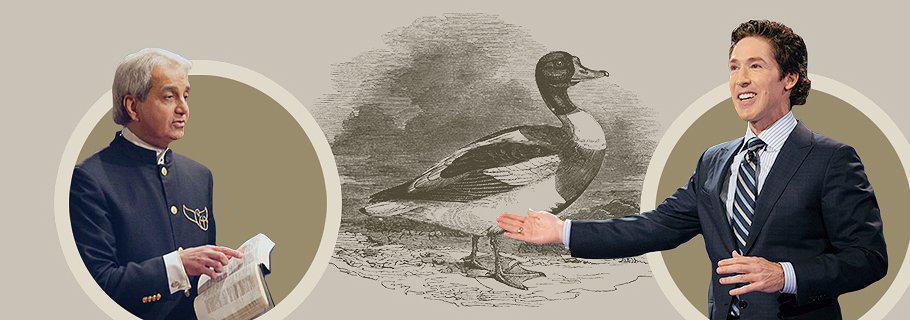A few years ago a video went viral among Christians, and I wonder if you remember it. It showed a preacher laying a verbal beat-down on Joel Osteen for his unwillingness to publicly declare that Jesus is the only way to the Father. This preacher went on to call Christians to be unashamed of the gospel, to preach it widely, and to declare it fearlessly. He rebuked the church growth movement for fostering an environment where unbelievers can comfortably remain in their unbelief. It was an impressive bit of preaching that was exceptional for this reason: The preacher was Benny Hinn. One heretic who has spent a lifetime spewing error was using the Word of God to rebuke a second heretic who has spent his lifetime spewing a different error. It seemed to prove the old adage that even a broken clock is correct twice a day.
I have been thinking a lot about the world as it is at the frontier of the digital explosion and am coming to see that social media has a way of changing our relationship with time. In some ways it seems to compress it so that timelines are shorter than they have ever been. It discourages slow meditation and encourages thoughtless haste. Heroes are raised in a moment and busted down just as quickly. A single act of kindness or silliness (caught on video and posted to YouTube, of course) can instantly launch someone from utter obscurity to worldwide celebrity. A single bad tweet can instantly transform a great hero into a notorious villain. Reputations are made and destroyed in an instant. We find new heroes and discard old ones as quickly and carelessly as we change our socks. We’ve even got a new term to describe our merciless world: milkshake duck.
A number of years ago I was part of a small group of people invited to spend a few hours in the company of one of our generation’s foremost theologians. We were able to ask him any question we wanted and it didn’t take long for someone to ask about a number of the rising leaders in the Christian world. How do we think rightly about these people? He offered counsel I’ve come to understand as exceptionally wise. He encouraged us to consider trajectories. Yes, we need to consider who a person is today, what he is saying, and what he is doing. But we need to set that in the context of where he has come from and then try to extrapolate where he may soon be. It’s an inexact science, of course, but provides important information. It allows us to see whether there is encouraging growth or concerning decline. Has he come from a background of theological error and now seems to be growing toward the truth? Or has he come from a solid theological background and now seems to be declining toward apostasy? If his trajectory is encouraging, then perhaps we don’t need to respond to unsettling actions or statements in quite the way we would if his trajectory is concerning.
That discussion and subsequent reflection has led me to adopt this principle: Don’t ditch someone who has a long history of faithfulness just because they said one thing that concerns you. Don’t embrace someone who has a long history of unfaithfulness just because they said one thing that impresses you. Benny Hinn may have said some impressive things about Joel Osteen that day, but his whole life’s trajectory is toward deeper and greater heresy. It would be folly to make too much of his few good words by extending to him the hand of fellowship. Meanwhile, we don’t have to look far to find people who have said things that concern us, but their life’s trajectory is toward higher and greater truth. It would be folly to make too much of their few poor words by removing from them the hand of fellowship.
Because so much of our lives is mediated by the internet, we are shaped by the messages embedded in the medium that constantly call us to haste, to the immediate, to what’s most recent. As people of the internet, we face the temptation to welcome others far too quickly and discard them far too carelessly. The first is unfair, the second unwise. It’s far better to move slowly instead of hastily, to measure long instead of short, to be gracious instead of merciless. We’ve got to be people who are shaped more by the Word than by the Net.










